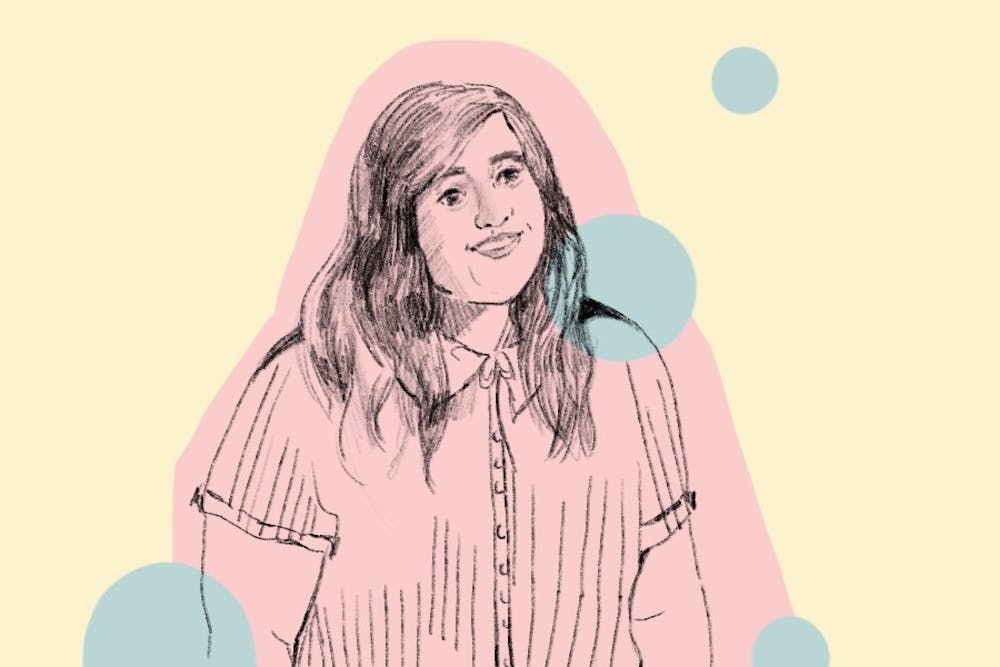Many may recognize Aidy Bryant from her role as a cast member on Saturday Night Live, but in Shrill, a Hulu original series, her talents are put to use, navigating between difficult topics and outrageous comedy.
Shrill began as Hulu adaptation of Lindy West's autobiography of the same name, with Aidy Bryant taking on the lead role of Annie. In season one, Annie primarily deals with issues surrounding her own confidence related to her weight and conflicts with her fat–shaming boss (John Cameron Mitchell) at the weekly journal she writes for. Despite his claims of pro–feminism ("I love the whole female empowerment bullshit. I kind of invented it in the '90s. I was the original bass player in Bikini Kill."), he shuts down Annie's more transgressive articles and belittles her. Bryant's character also struggles to get her on–again–off–again boyfriend Ryan (Luka Jones) to commit and has to deal with trolls on the internet making fun of her for her articles.
In the season finale (spoilers ahead) she confronts her boss and quits her job to freelance instead, finally gets her boyfriend to communicate his feelings properly, and confronts her biggest troll (Beck Bennett) at his house, smashing his car window on her way out. Season two continues on from there, but breaks out of the narrow mold with which it was fitted.
Although initially unburdened by her new lease on life, Annie begins to realize the reality of her situation, now self–employed and floundering as a writer with rising family issues to boot. While slightly more dour than the first season, the opportunities for comedy are more ripe, such as in the season opener when she and Ryan are caught by a troop of Boy Scouts while he performs oral on her in a field.
Likewise, instead of many of the jokes going to Bryant, several of the better lines are given to auxiliary characters, delivered by stand–out comedians like Gary Richardson and Jo Firestone ("I remember when my mom met my boyfriend, and now he's my stepdad. It's not so bad. I took his last name.").
But despite the hilarity of the new season, some things fall by the wayside. Lolly Adefope in the role of Fran, Annie's gay, British, and sexually promiscuous best friend, gets some time apart to explore her own journey, but unfortunately fails to deliver any real meaning with her time on screen. Annie's job search, likewise, failed to resonate as sympathetic. There are nuggets of actual ingenuity at times, however. Coming back from a conference of WAHAM (Women Are Having A Moment), Annie reflects on her experience of popular feminism, which she comes to realize is more focused on selling products than actually furthering equality, unless you're an upper–class white woman. In talking it out with her editor, they both further their understanding of the topic, a genuine moment of compassion emerging at the end.
The season also sees more actualization for Ryan, who previously had been in a more antagonistic position as the deadbeat boyfriend. Lucikly, he's shaped up and settled into a similar trope to that of Chris Pratt in Parks and Recreation, now the goofy and supportive boyfriend.
At times, Shrill season one came across as preachy with some actual heart, but season two finds its rhythm. It gives more agency to the majority of the cast, exploring stories besides that of the main character. While some have been blind alleys, others have honed in on what makes this comedy so fascinating to watch, walking the tightrope of important topics in modern–day America and giving just enough room for effective comedic writing. As a relative newcomer and unknown in the canon of streaming sitcoms, it's sure to make its mark next to hits like Bojack Horseman and Fleabag.







